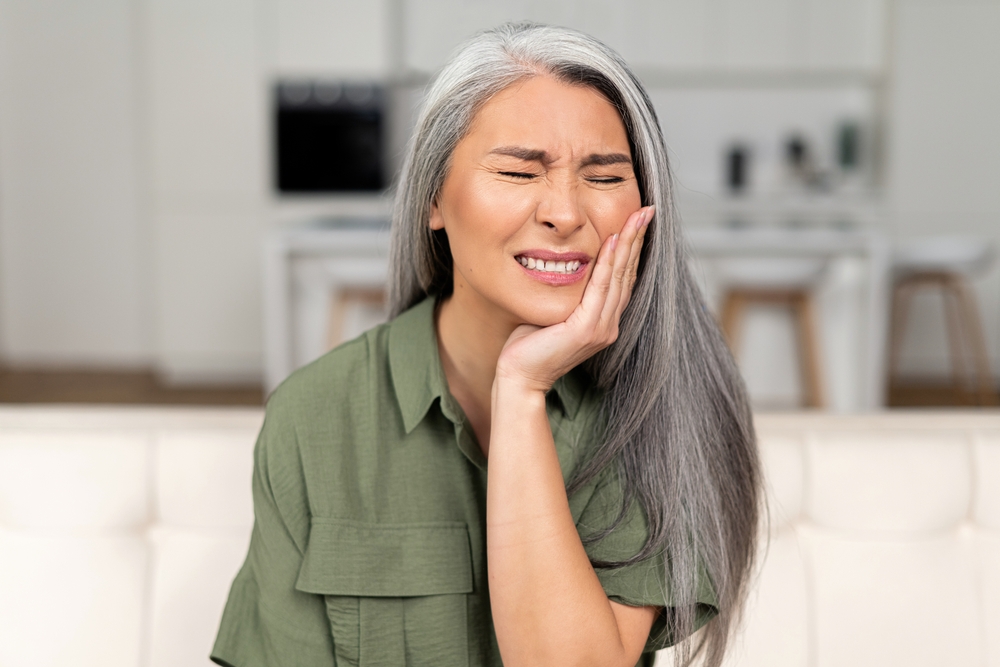Teeth Grinding and TMJ: What Is the Connection?

You’ve likely heard about teeth grinding (bruxism). You may do it yourself or know someone who does. You’ve also likely heard about temporomandibular joint disorders (TMJ disorder or TMD), a dental problem we can help treat at our office in Huntington Beach, CA.
But did you know that teeth grinding and TMJ disorders are sometimes linked?
Dr. Andrew G. Mortensen understands that the structures of the mouth are interconnected and that multiple issues may be present that lead to oral health problems. Let’s look at each of these issues individually, what the connection is, and how we can treat both problems.
What Is Teeth Grinding?
Teeth grinding refers to the gnashing and clenching of the teeth. This often occurs during the night, which can lead to headaches, earaches, and damaged teeth. Bruxism is often the result of stress and poor dental alignment.
What Is a TMJ Disorder?
A TMJ disorder refers to the dysfunction of the jaw joint and its surrounding structures. This includes the joint itself as well as the nerves, muscles, and connective tissue around the jaw. When TMD occurs, people tend to experience clicking or popping in the jaw, lockjaw or limited movement of the jaw, and jaw pain.
Strain on the Jaw Joint and Surrounding Structures
So what is the connection?
If you try clenching your teeth right now, you’ll notice the tension placed on the jaw joint. If this happens repeatedly during the night, it can cause major strain on your jaw. Over time, this wear and tear on the jaw area can lead to poor function.
In some cases, TMJ leads to teeth grinding. If your jaw is not functioning right, it could lead to your teeth shifting and grinding just to find a comfortable resting position as you sleep.
Treating One Problem Could Help With the Other Issue
Since teeth grinding and TMJ disorders are linked, dentists and doctors tend to consider a holistic treatment for the problems a patient faces. During your visit to our Huntington Beach dental office, we can examine your teeth and determine the best method of treating both TMJ and teeth grinding.
Treatments for Teeth Grinding and TMJ Disorders
Here are some potential treatments for bruxism and TMD.
Mouth Guard Worn at Night
A mouth guard is a protective retainer that prevents direct contact between the upper teeth and the lower teeth. Also known as a night guard, this appliance prevents tooth damage and reduces stress on the jaw joint.
Orthodontic Treatment
Improving the alignment of your teeth can reduce the stress and movement of your jaw throughout the day. For this, we can use Invisalign® to improve tooth alignment or look into traditional braces.
At-Home and Lifestyle Changes
Stress is a major contributing factor in teeth grinding. We could suggest some ways to improve your sleep hygiene and get rid of your anxiety and stress throughout the day.
More Advanced Procedures
Sometimes complicated cases of TMJ involve more invasive procedures, such as steroid injections to help the joint or surgery. These can be discussed when less invasive procedures are no longer viable.
Contact Our Practice to Learn More
If you grind your teeth and have TMJ, we can help. To learn about relief, contact our Huntington Beach dentist's office.



